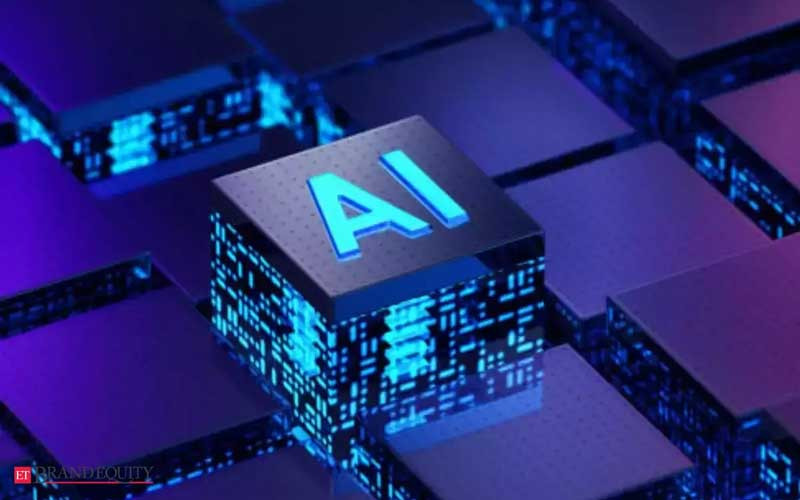
IT is no doubt that a new world is unfolding right in front of our eyes, with artificial intelligence (AI) revolutionising the way we see the world.
However, years of science fiction movies (my favourite is the Terminator franchise) created divisions on whether humanity is better off with AI or otherwise.
It is however not my objective to start an age-old argument, but rather, to situate were I see AI making a difference in my trade of information systems auditing.
Specifically, in this instalment, I will primarily focus on the significance of AI in information systems auditing and how it has transformed traditional auditing practices.
A disclaimer: This is not comprehensive, but rather, it is a conversation starter, and an attempt to show some of the potential benefits of AI.
Enhanced data analytics
It is no secret that most organisations globally rely on large datasets throughout the production cycle, with some even focusing mainly on harvesting, organising and selling big data.
One of the primary benefits of AI, therefore, is its ability to process and analyse large volumes of data with speed and accuracy.
- Public relations: How artificial intelligence is changing the face of PR
- Queen Lozikeyi singer preaches peace
- Public relations: How artificial intelligence is changing the face of PR
- Business opinion: Branding through Artificial Intelligence
Keep Reading
AI-powered tools can sift through vast datasets to identify patterns, anomalies, and potential risks, enabling auditors to gain comprehensive insights into the organisation’s operations.
This enhanced data analytics capability allows auditors to make more informed decisions and provide valuable recommendations to improve internal controls and operational efficiency.
Illustrations of these include natural language processing (NLP) tools which are used to analyse and understand unstructured data, such as audit reports, emails, and textual data from system logs.
NLP techniques, including text mining, sentiment analysis, and topic modelling, help auditors extract insights, identify patterns, and assess the tone and context of communication within an organisation.
Real-time monitoring and risk assessment
AI facilitates real-time monitoring of transactions, activities, and system logs, enabling auditors to proactively identify irregularities or potential fraud.
Through machine learning algorithms, AI can continuously assess risks and flag unusual activities, thereby minimising the likelihood of fraudulent behaviour going undetected. This real-time risk assessment empowers organisations to mitigate potential threats promptly and uphold the integrity of their information systems.
By analysing historical data, AI tools can identify risk factors, predict future risks, and prioritise audit efforts accordingly.
This enables auditors to focus on high-risk areas and allocate resources more effectively, improving the overall efficiency of the auditing process.
Predictive analysis for future trends
By leveraging AI, auditors can harness the power of predictive analysis to anticipate future trends and risks within the organisation’s information systems.
Machine learning algorithms can analyse historical data to forecast potential vulnerabilities, compliance issues, or operational inefficiencies.
This proactive approach enables auditors to address potential challenges pre-emptively and implement strategies to fortify the organisation’s information systems against emerging threats, this includes predictive analytics tools.
Automation of routine tasks
AI has the capability to automate routine auditing tasks, such as data extraction, validation, and report generation. This automation liberates auditors from repetitive manual tasks, allowing them to focus on more strategic and value-added activities.
Furthermore, AI-driven automation minimises the margin for human error, ensuring greater accuracy and consistency in auditing processes.
Examples of such systems include robotic process automation tools which automate repetitive tasks, such as data extraction, data validation, and report generation.
Continuous monitoring and compliance adherence
Traditional auditing methods often involve periodic assessments, leaving gaps in identifying risks and non-compliance between audit cycles.
AI facilitates continuous monitoring of information systems, enabling auditors to maintain a real-time understanding of the organisation’s adherence to regulatory requirements and internal policies.
This continuous oversight ensures that any potential issues are promptly addressed, reducing the organisation’s exposure to compliance-related risks.
Enhanced audit quality
AI tools can improve the overall quality of audits by providing auditors with advanced analysis capabilities, reducing the reliance on manual processes, and enhancing accuracy and consistency.
AI can help auditors identify hidden risks, patterns, and insights that may not be apparent through traditional auditing methods.
This improves the effectiveness of audits and enhances the reliability of audit findings and recommendations.
Fraud detection
AI-powered systems can enhance the detection of fraudulent activities by analysing large datasets and identifying potential indicators of fraud.
Machine learning algorithms can learn from historical fraud patterns and apply that knowledge to identify suspicious transactions or behaviours.
By automating fraud detection, AI assists auditors in detecting fraud more effectively and efficiently. For example, Network Intrusion Detection Systems will help identify and, deter potential security breaches or unauthorised activities on a network.
Challenges and considerations
While the integration of AI in information systems auditing offers numerous advantages, it also presents challenges and considerations.
The reliance on AI requires auditors to possess a thorough understanding of the technology and its limitations.
Additionally, ensuring the ethical and responsible use of AI in auditing processes is paramount to maintaining trust and integrity. In the next instalment, I will discuss the ethical considerations of adopting AI in information systems auditing.
Conclusion
The incorporation of AI in information systems auditing represents a paradigm shift in the way organisations approach risk management and compliance.
The advanced capabilities of AI empower auditors to gain deeper insights, enhance risk management, and drive operational excellence.
As technology continues to advance, AI will undoubtedly play an increasingly pivotal role in shaping the future of information systems auditing, providing organisations with the tools to navigate the complexities of the digital age with confidence and resilience.
However, the cost and complexities associated with some of the AI related tools are expensive to run and maintain.
In Zimbabwe for example, incorporating AI in information systems auditing seems far off due to the general technological deficits that characterise the country.
Even though, it is worthy to embrace AI in all facets of business.
- Lorraine Candice Chakuzira is an information systems auditor and writes in her personal capacity. She can be contacted on http://linkedin.com/in/lorraine-candice-chakuzira-09626a149. She writes here in his personal capacity.






